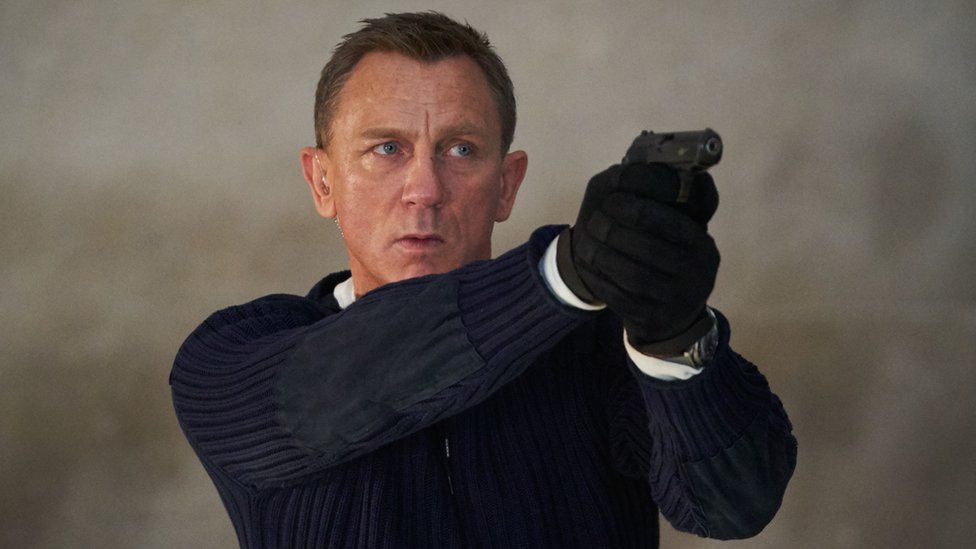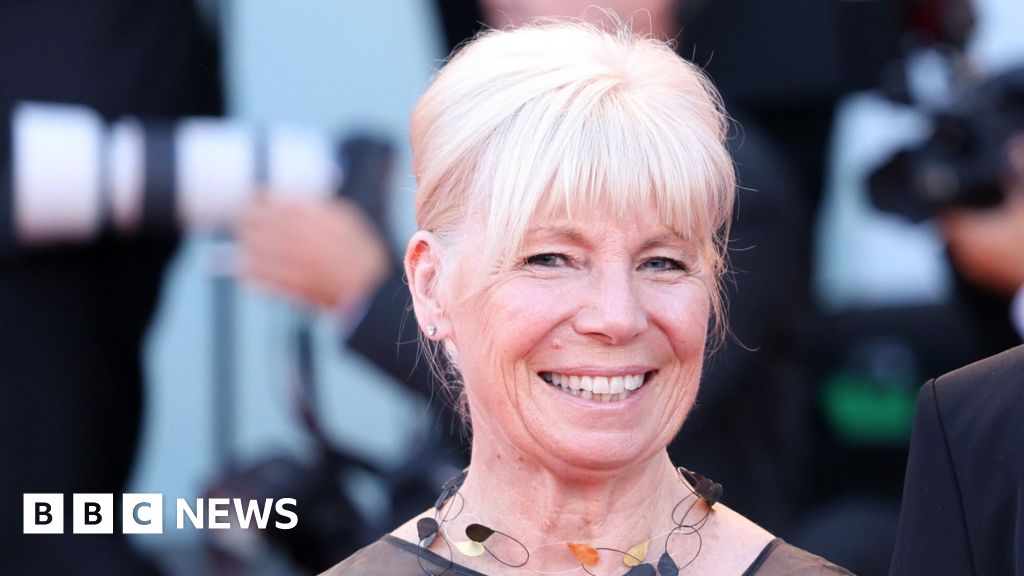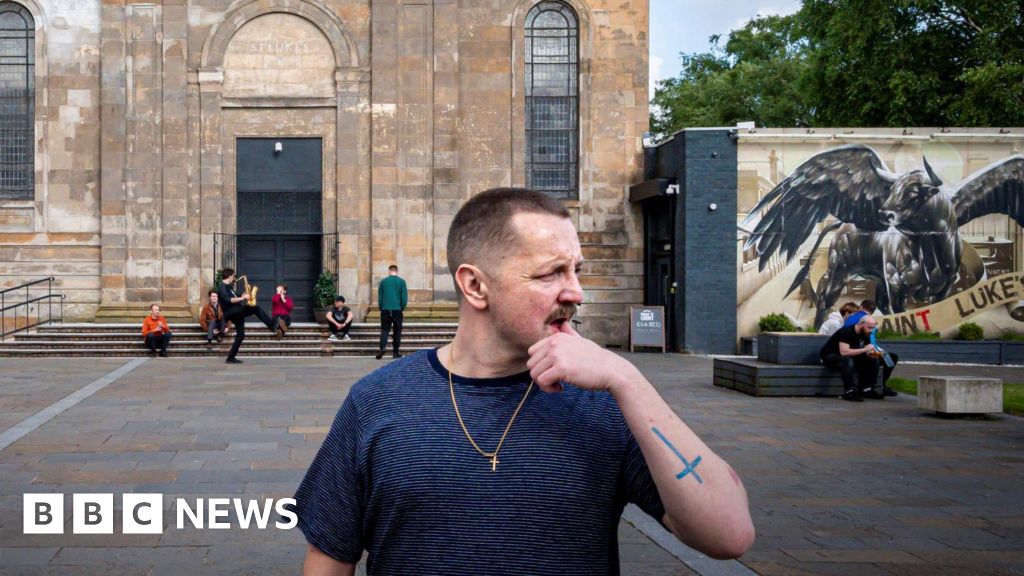ARTICLE AD BOX
 Image source, Nicola Dove/PA
Image source, Nicola Dove/PA
Purvis and Wade developed Daniel Craig's arc as Bond over fifteen years and five films
By Vincent Dowd
BBC World Service
They have written seven James Bond screenplays, including all the Daniel Craig films, and their previous collaborations date back over 20 illustrious years.
Yet Neal Purvis and Robert Wade seldom discuss in public the complex way the Bond scripts come together.
The 60th anniversary of the release of Dr. No got them to open up about keeping the franchise alive - and killing Bond off.
When, in the late 1990s, the team of Purvis and Wade signed on to write The World is Not Enough, they already had a couple of successful screenplays to their credit.
However, it was their first Bond - Pierce Brosnan's third - that lifted them into the top rank of screenwriters.
But they weren't alone in the writing process. The film carried another writing credit too - the American writer Bruce Feirstein.
Image source, Millie Turner/BFI
Image caption,Neal Purvis (left) and Robert Wade (right) have co-written seven Bond movies
In fact, almost all their Bond screenplays have then been passed on to at least one other writer for what Purvis terms "a polish".
"When we've finished our job on the screenplay, it's basically goodbye Rob and Neal," Purvis says. "With Casino Royale, for instance, Paul Haggis took over. And with Skyfall it was John Logan, but obviously always working with the director."
Last year, with No Time to Die, Fleabag creator Phoebe Waller-Bridge was on the writing credits too.
Wade adds that it can get complex. "In the case of Skyfall, John Logan came on after us and then we did a bit more again. Skyfall in particular just kept developing and it developed really well I thought."
Any discussion with movie writers tends at some point to include the term "story arc". Purvis and Wade faced the ultimate challenge: developing Daniel Craig's arc as Bond over fifteen years and five films.
Purvis recalls they started work on Casino Royale when the situation paralleled how it is now: a Bond had left and a new actor was yet to be cast.
"So in that case we were writing our story with no actor in mind but from Ian Fleming's original Casino Royale novel [published in 1953]. We wrote to his conception of the story as faithfully as we could. Daniel then inhabited the role and of course over time we saw what Daniel could do."
Image source, Eon productions via Press Association
Image caption,Daniel Craig was cast as the spy in 2005, making his debut in Casino Royale in 2006
According to Wade, it was a different experience to write from a beginning.
"In the two films we'd written for Pierce it was always essentially a continuum of what came before. The basics of character couldn't change - he was always infallible."
"We tried to make Pierce's Bond more vulnerable and Pierce played it very well. But you couldn't do a big shift in the character because you knew he'd always have to end up being James Bond. Whereas with Daniel we knew we could start developing an arc. In a way we were starting anew."
Purvis says dialogue scenes inevitably changed their character with Craig on board because the storyline was changing. "Daniel's Bond could have the strength and determination and bravado that Pierce had before him. But the actual dramatic scenes were different so inevitably the dialogue moved on. As early as Casino Royale the tone changed."
The following film, Quantum of Solace, provided a different challenge. Its title came from a Fleming short story of 1959 but otherwise the men had to create a totally new story. The critical delight which greeted Casino Royale was not repeated.
Since its release, it has regularly been placed near the bottom end of the charts ranking all the films from the long-running franchise.
Wade says Quantum was conceived to be the second half of Casino Royale. "And then it changed during production. But it was still James Bond being completely affected by what had happened in the previous movie."
"I know we felt even in that case, Ian Fleming was still our touchstone, even though the plot wasn't his. You go back to the Flemings and you try to include nuggets of how Bond spoke."
Image source, TOBY MELVILLE/Reuters
Image caption,Purvis and Wade developed Craig's arc as Bond over fifteen years and five films, ending with No Time To Die
The development of Bond during their tenure has broadly gone down well with critics. "On Neal Purvis and Robert Wade's watch, the secret agent has become a parent, grown his hair and even alluded to gay experiences," noted the Guardian's Ryan Gilbey. Elsewhere, IndieWire's Bill Desowitz praised their "witty repartee" as they were brought back for Spectre.
However, their work has not gone down well with everyone. Screen Rant's Alex Leadbeater decried "their complete lack of consistency," adding: They are behind as many bad films as they are good ones -depending on how you count - and the issues range all the way from narrative (Quantum of Solace doesn't really have any story drive) to tonal (their films reliably stumble when trying to insert Moore-esque cheese).
"On a flat results basis, they aren't as good as they're made out to be, and it's getting to a point where things need shaking up."
Nonetheless, the duo remain the most experienced living writers of Bond screenplays. So have they learnt hard and fast rules?
Purvis says they always have to be alert to expectations about the action. "It's what people used to call the formula though hopefully that's getting broken now. So it's a case of giving people what they're used to but also making it different - that's the tricky bit. Bond writers struggle with that but it's what the job is."
The writers have just taken part in a BFI event to celebrate 60 years since Eon Productions released Dr. No in 1962. Looking back well before their own era, what did they admire most about that first film?
Wade thinks Sean Connery was an unforgettable screen presence. "But there are other really basic things, like the editing. It's hard now to remember how revolutionary the editing was: it completely changed how a certain kind of film was made."
"If you look at Dr. No now - the colours, the cutting, the cinematography, the locations and of course the wonderful music - it still leaps off the screen at you."
Image source, Suzan Moore/PA
Image caption,Broccoli (left) and Wilson (right) have produced nine of the 25 Bond films
The men insist they have no idea if Barbara Broccoli and her half-brother Michael G. Wilson will call on their services again when the time comes to inch towards a screenplay for Bond 26. Broccoli has said that production work could still be two years away.
Last year, at the end of No Time to Die, James Bond appeared to be dead - a pretty definite way to conclude the story arc Neal Purvis and Rob Wade had spent 15 years constructing.
"We were aware we were privileged to write something very different," says Wade. Purvis adds they were delighted to be able to renew the 007 story arc in 2006 and then write the end of an older, more exhausted Bond in No Time to Die.
"But both men are convincing when they say they have no inside information on where the story will be at the start of the next film."
Broccoli and Wilson have been on the Bond publicity trail on both sides of the Atlantic to mark the 60th anniversary. They've insisted they're nowhere near deciding on a new Bond actor, or who will write the screenplay... or how they can pick up with Bond apparently Double-O-Dead.
But the more those questions are asked the stronger interest becomes in the public and the media. And the more the producers love it.

 2 years ago
26
2 years ago
26








 English (US) ·
English (US) ·